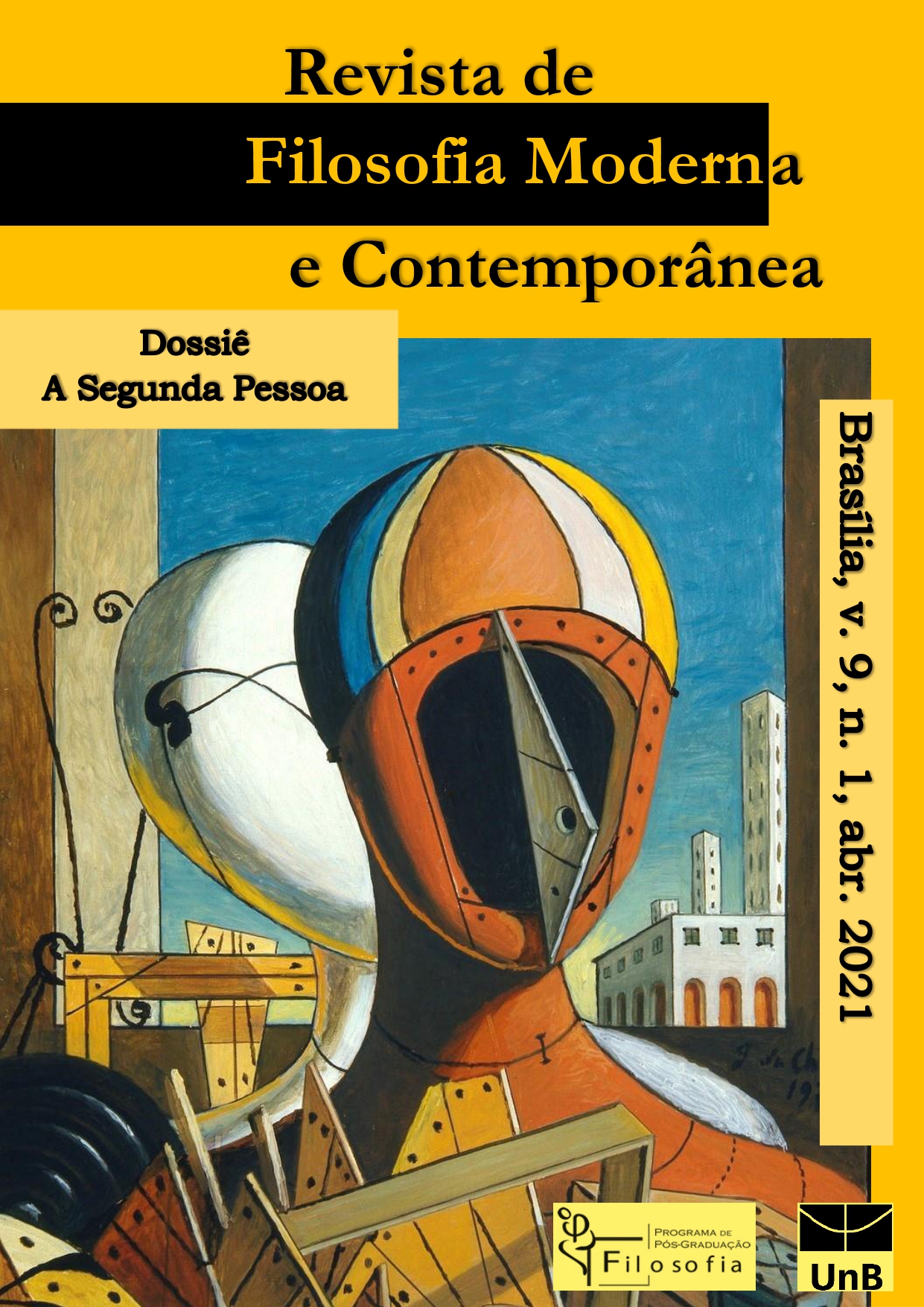Second Person Perspectives in the Information Technologies Era
DOI:
https://doi.org/10.26512/rfmc.v9i1.41038Keywords:
Alterity. Information and Communications Technologies. Direct Perception. Virtual Reality.Abstract
Our central aim in this paper is to analyze alterity relationship in the context of information and communication technologies (ICT), starting from the second person perspective and underlining the fact that the alterity direct relations are meaningfully changed by using ICT. We analyze first central theses for the second person perspective, discussing some criticisms that such perspective addresses to the theory of direct perception. Then, we introduce the concept of social and technological \textit{affordances}, aiming at clarifying the role they play in the alterity relations in computerized societies. We argue that, despite the gains provided by ICT in human communication, one of the undesirable consequences in social interactions is a confusion between an alterity experience in ecological reality and the so-called virtual “reality”. We shall try to point out pragmatic consequences of that duplication in the context of virtual “reality”, highlighting its possible impact on social habits structuring alterity relations.
Downloads
References
BAUMEISTER, R. F. VOHS, K. D. (Eds)Encyclopedia of social psychology. Thousand Oaks, London, New Delhi and Singapore: Sage Publications, 2007.
CHALMERS, D. The virtual as the digital.Disputatio, 11 (55):453-486, 2019.
GIBSON, J. J. The ecological approach of visual perception. Classic edition. New York: Psychology Press, 2015.
KOBAYASHI, G.; BROENS, M. C.; GONZALEZ, M. E. Q.; QUILICI-GONZALEZ, J. A. The Internet of Things and its Impact on Social Relationships Involving Mutual Trust In: IEEE International Symposium on Technology in Society (ISTAS), 2015, Dublin. IEEE International Symposium on Technology in Society (ISTAS) Proceedings. Dublin: IEEE, 2015. v.1. p. 6.
LANGE, Paul A. M. van; HIGGINS, E. T KRUGLANSKI, A. W. (Eds.) Social psychology: handbook of basic principles. Third edition. New York: The Guilford Press, 2021.
MCARTHUR, L. Z.; BARON, R. M. Toward an Ecological Theory of Social Perception.Psychological Review 90 (3): 215–238. 1983.
PEREZ, D.; GOMILA, A. The second person: Social cognition in human interaction. London and New York: Routledge,2021.
QUILICI-GONZALEZ, J. A.; BROENS, M. C.; GONZALEZ, M. E. Q; KOBAYASHI, G. Complexity and information technologies: an ethical inquiry into human autonomous action. In: Scientiae Studia (USP), v. 12, p. 161-179,2014.
RYLE, G.The concept of mind. Introduction Julia Tanney. London and New York: Routledge, 2009.
TODOROV, T. A.Conquista da América. Trad. Leila Perrone Moises. 5ª. Ed. São Paulo: Martins Fontes: 2019.
TRIVERS, R. 1971. The Evolution of Reciprocal Altruism.Quarterly Review of Biology 46 (1): 35–57.Disponível em https://greatergood.berkeley.edu/images/uploads/Trivers-EvolutionReciprocalAltruism.pdf. Acessado em 25/05/2017
Downloads
Published
How to Cite
Issue
Section
License
Copyright (c) 2021 Journal of Modern and Contemporary Philosophy

This work is licensed under a Creative Commons Attribution-NonCommercial-NoDerivatives 4.0 International License.
Copyright for articles published in this journal is retained by the authors, with first publication rights granted to the journal. By virtue of their appearance in this open access journal, articles are free to use, with proper attribution, in educational and other non-commercial settings.


